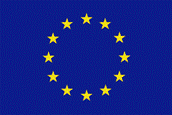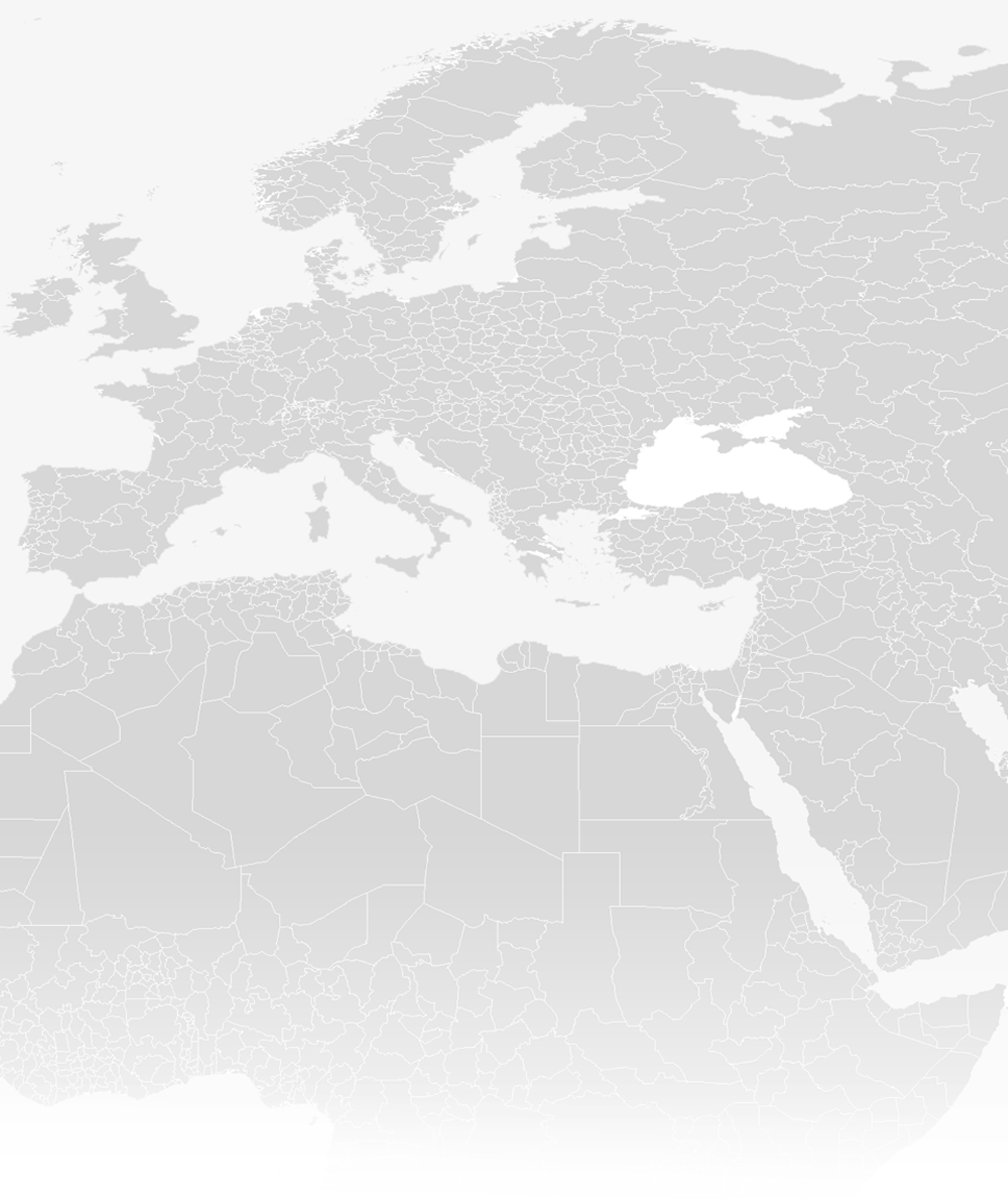

This project has received funding from the European Union Framework Program for Research and Innovation (SC5-18a-2014) under grant agreement nº 641538

Instituto de Ciencias del Mar. CSIC (Spain)
The Spanish National Research Council (CSIC) is the largest
research organization dedicated to research in Spain and the
third largest in Europe. Belonging to the Spanish Ministry of
Economy and Competitiveness through the Secretary of State for Research, Development and Innovation,
its main objective is to develop and promote research that will help bring about scientific and
technological progress, and it is prepared to collaborate with Spanish and foreign entities in order to
achieve this aim. It has a staff of more than 13,000 employees, among these about 3,300 are permanent
researchers and about 4,300 are pre- and post-doctoral researchers. CSIC has 71 institutes or centres
distributed throughout Spain, 54 Joint Research Units with universities or other research institutions and
one delegation in Brussels. CSIC has considerable experience in both participating and managing R&D
projects and training of research personnel. Under the 7th Framework Programme CSIC has signed 724
actions (including 62 coordinated by CSIC and 45 ERC projects). Funding wise, CSIC is listed the 6th
organisation in Europe in the 7th Framework Programme, and it also has a significant presence in other
European programmes as LIFE+, INTERREG, EMRP, RFCS, ERANET, etc.
Researchers of CSIC participating in ConnectinGEO are based at the Institut de Ciències del Mar (ICM, Barcelona) an interdisciplinary institute in marine sciences. The team is shared by researchers from the Department of Physical and Technological Oceanography (DOFT) and from the Unit of Marine Technology (UTM). DOFT focuses on the description and explanation of the physical behaviour of the ocean and its role in the Earth climate. The observation and dynamics of water motion, ocean-atmosphere energy and momentum transfer, and remote sensing of the sea surface from microwaves to visible wavelength range, are DOFT topics of research with the aim to improve the knowledge about the physical processes in the ocean, from the microstructure to global scale climatic phenomena. DOFT is also working on new techniques for data analysis coming from both remote sensing and in situ instrumentation and in the design and development of advanced numerical models to study several aspects of ocean dynamics. DOFT is presently involved in several initiatives relevant for the project: leading the ocean part of the ESA’s SMOS observational mission, participating into new sensors developments (COMMONSENSE), in citizen and science observational activities in marine environment (CITCLOPS), collaborating to strength maritime safety and mitigating strategies for marine pollution impact (MEDESS-4MS) and contributing to the HYDROCHANGES observational network.
UTM is the unity that provides technical support and operates the Spanish national fleet of research/vessels. They are charged to offer the maintenance and infrastructure of both vessel capabilities and onboard observational equipment. Research and developments activities are concentrated to ensure the integration and interoperability of the data acquisition systems at European level (SEADATANET-2, EUROFLEET-2) and contributing to developed standards in COMMONSENSE project. This expertise on data harmonisation, OGC standards related with marine sensors is relevant to bring the maturity of existing vocabularies in the marine thematic area and to ensure its mapping with other communities. Additionally, UTM can facilitate the links and access to SEADATANET infrastructure composed of 45 national oceanographic data centers bordering the North-East Atlantic and adjacent seas.
Key project participants________________________________________________________
The CSIC team will contribute to the selection and definitions of EV in the ocean context (WP 2), supply
the status concerning the relation between remote-sensing and in situ in the case of the SMOS mission
(WP3), coordinate the appropriate standards for database integration and interoperability in the context of
ocean initiatives (WP4) and contributing to gap analysis definition and methodology in WP6. The key
ConnectinGEO researchers from the ICM-CSIC team are:
Dr. Emilio García Ladona PhD. in Physics and staff researcher at DOFT. He is currently member of the Oceanographic section of the Spanish National Commission on Geophysics and Geodesy. Main research interests cover a wide range of topics focused on several aspects of physical oceanography and data analysis techniques: mesoscale processes, topographic and shelf/slope exchanges, western Mediterranean oceanography, lagrangian dynamics, pattern recognition techniques applied to remote sensing data and several technological activities. Around 20 years of research activity participating in several national and international projects (EUROMODEL, OMEGA, MATTER, MERSEA...) he has been the advisor of 4 theses and co-author of about than 65 research publications. Relevant for this project, he is currently participating in the COMMONSENSE (EC-FPVII) project to develop cost efficient and new generation of sensors for monitoring the marine environment, developing strategies for marine safety and risk analysis to face pollution events in the Mediterranean (MEDESS-4MS, MEDINTERREG). Key role on the project: Staff working for the beneficiary He will lead– the CSIC contributions to the project.
Dr. Justino Martínez received a B.Sc. degree in physics in 1991 and a Ph.D. in Theoretical Physics in 1995, both from Universitat Autònoma de Barcelona. He was Assistant Professor at Physics Department of this University from 1991 to 1999. He worked as freelancer programmer for a wide variety of enterprises and organizations (FAO, CIHEAM, CSIC...) since 2000 until 2009, and he is currently member of the Barcelona Expert Centre (BEC) charged of the whole chain of processing of salinity and humidity products within the SMOS mission. He is currently involved on data cal-val activities of sea surface salinity from SMOS against in situ data from drifters, ARGO profiles, and ground measurements at global scale. Key role in the project: Temporary staff computer scientist working for the beneficiary. He will be involved on data acquisition, data checking and distribution issues.
Overview
Objectives
Participants
CREAF
Tiwah
CNR
IIASA
CMCC
52º North GmbH
S[&]t Corporation
ICM
BIRA
ARMINES
NILU
EXETER
Institut Mines-Télécom
IEEE
EARSC









